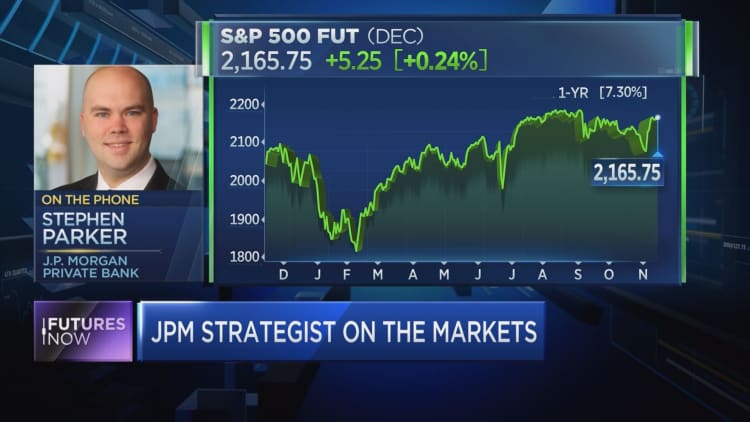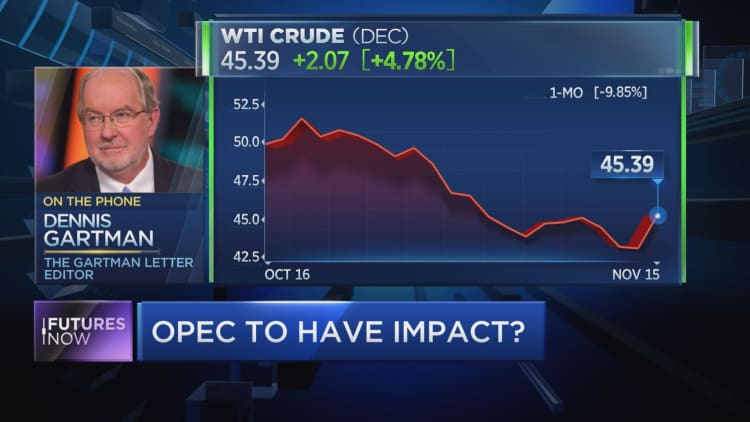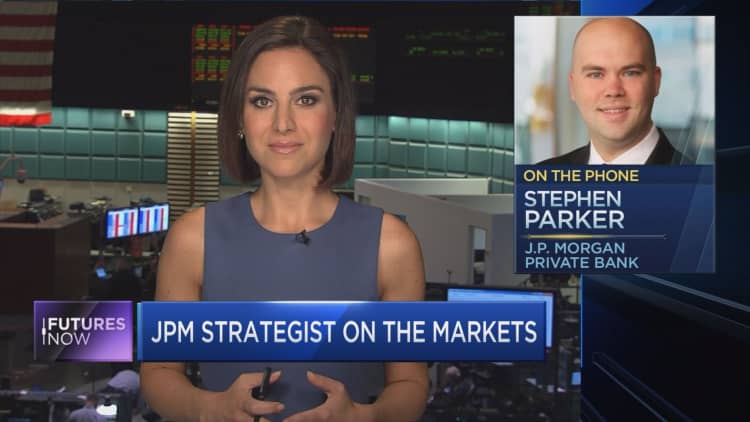


In the aftermath of a harrowing election cycle, JPMorgan is urging investors to avoid making moves based on emotion and politics as the so-called Trump rally takes a breather.
"We are seeing a bit of a pause. There was a very sharp reaction after the election," JPMorgan's Stephen Parker said Tuesday on CNBC's "Futures Now." "What you're generally seeing is a rotation from the playbook of the last couple of years that was all about a low-yield, low-inflation monetary policy driven world to a world where you're looking at higher rates and higher inflation."
The head of thematic equity solutions for JPMorgan Private Bank went on explain that with these developments in mind, investors should look to pro-cyclical parts of the market like banks and health care. And, while gains for those sectors have taken a pause in recent sessions, Parker maintains that outlook is still positive. Thanks to strong earnings potential and subsiding fears that these sectors will be heavily regulated under President-elect Donald Trump, Parker says it's now time for Wall Street to focus on the big picture.
"In times like this, where politics and macro uncertainty have driven major market swings, the most important thing for clients to remember is to stick to a long-term plan," Parker said in a note to CNBC. "Emotional investing at a time like this can be very detrimental to returns."
Parker noted that, on the Monday after Brexit, there was nearly $10 billion in outflows from global equity funds, one of the largest redemptions in the last decade. And, since then, stocks are up nearly 10 percent.
With this in mind, Parked urged investors to capitalize through buying the dips.
"Long-term investors could be getting a good opportunity to add on weakness," Parker concluded when discussing a strategy for the next 12 to 18 months. "While dollar strength could be a headwind, emerging market central banks and economies are much better positioned to deal with what we believe will be a modestly stronger dollar, thanks to prudent policy action and the recovery in commodity markets."
Given this, Parker believes that, if interest rates move higher because of improving growth and global reflation, that emerging markets should be well positioned to benefit. He noted that emerging market valuations have underperformed U.S. equities by over 100 percent from 2010 to 2015 and therefore look attractive with better growth prospects that could serve as the catalyst to reverse recent trends.



